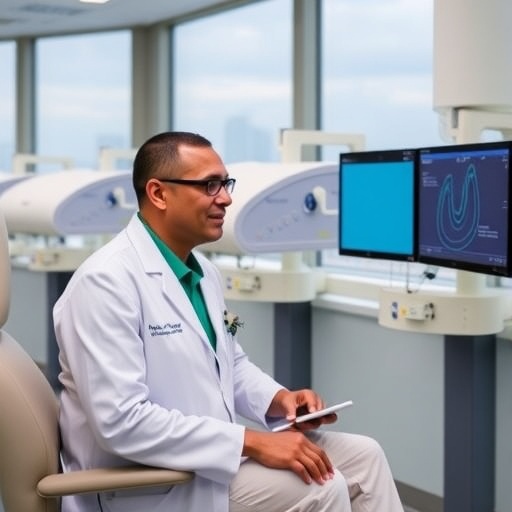The Mount Sinai Health System has announced a groundbreaking advancement in clinical care through the integration of Microsoft’s Dragon Copilot, a cutting-edge AI clinical assistant engineered to revolutionize the documentation process and administrative workflows in healthcare settings. This strategic implementation marks a pivotal juncture in Mount Sinai’s extensive digital transformation initiative, reflecting its deep commitment to leveraging responsible artificial intelligence to enhance clinician efficiency and improve patient outcomes at a systemic level.
Dragon Copilot is architected on a highly secure, scalable, and healthcare-specific foundation that merges advanced natural language processing, ambient listening technology, and generative AI capabilities. These sophisticated technologies enable seamless documentation by capturing physician-patient interactions in real time, directly integrating comprehensive clinical notes into the electronic health record (EHR) system. By automating cumbersome administrative duties and surfacing critical clinical data instantaneously, Dragon Copilot facilitates a smoother, more efficient clinical workflow and drastically reduces the time clinicians spend on paperwork.
Lisa Stump, Executive Vice President and Chief Digital Information Officer at Mount Sinai Health System, emphasized that after a rigorous multi-vendor evaluation, this deployment of Dragon Copilot signifies a transformative leap in technological support for clinicians. The AI assistant is directly embedded within the clinical workflow, effectively alleviating the pervasive issue of documentation fatigue while enhancing information flow. This, in turn, frees healthcare providers to dedicate more time and attention to patient care—ultimately advancing Mount Sinai’s mission of delivering exceptional health services.
The underlying technology employs unified voice recognition and ambient listening, allowing caregivers—including physicians and nurses—to document care through natural, conversational dialogue during clinical encounters. These capabilities are augmented by generative AI, which synthesizes and organizes the documented information, simplifying intricate clinical tasks and improving care coordination. This results in higher documentation accuracy and speed, fostering richer interactions with patients who benefit from more attentive and engaged providers.
Brendan G. Carr, MD, MA, MS, CEO of Mount Sinai Health System, articulated the institution’s responsible approach to AI integration, underscoring that Dragon Copilot is intended not to supplant human clinical judgment but to empower it. The AI acts as an extension of the care team, enhancing human decision-making by providing timely, contextual information and streamlining workflows. This partnership between human expertise and artificial intelligence is designed to facilitate smarter, more interconnected, and compassionate care delivery.
Kenneth Harper, General Manager of the Dragon product for Microsoft Health and Life Sciences, acknowledged Mount Sinai’s leadership in academic medicine innovation. He highlighted that embedding ambient and generative AI directly into clinical processes helps reduce clinician burnout and reclaim valuable time, enabling healthcare professionals to reconnect with their patients meaningfully. This deployment exemplifies a shared vision of responsible AI use that centers the human element within the healthcare experience.
The phased rollout of Dragon Copilot has commenced with select departments at Mount Sinai, with plans for a comprehensive system-wide implementation scheduled for 2026. Each stage includes meticulous training programs, ongoing feedback mechanisms, and detailed evaluations to ensure a secure, equitable, and effective integration. This careful, iterative approach helps safeguard both clinician satisfaction and patient safety while optimizing AI tool adoption.
Mount Sinai’s commitment to AI-driven innovation is part of a broader digital strategy aimed at enhancing clinician well-being, operational efficiency, and clinical outcomes. By adopting sophisticated AI companions like Dragon Copilot, the health system reinforces its status as a national exemplar of innovation in academic medicine, poised to transform healthcare delivery on multiple fronts.
In deploying Dragon Copilot, Mount Sinai not only reduces the cognitive burden associated with exhaustive documentation but also addresses clinician burnout—a critical concern in modern healthcare environments. The ambient AI listens passively in the background, capturing clinical narratives without disrupting the natural physician-patient dialogue. This ambient data collection is then processed by advanced generative models that produce accurate, comprehensive clinical notes and prompt necessary administrative actions, facilitating better clinician focus and improved care continuity.
Furthermore, the integration of AI-driven clinical documentation significantly enhances data interoperability and information retrieval within the EHR. The system’s capability to distill and elevate the most pertinent clinical facts ensures that providers have ready access to critical patient insight, supporting informed decision-making and enabling personalized care plans grounded in comprehensive, up-to-date information.
Mount Sinai Health System’s expansive infrastructure, consisting of seven hospitals, hundreds of outpatient practices, and numerous research centers, provides a demanding environment that benefits profoundly from such AI-enabled transformation. The scale and complexity of its clinical operations underscore the necessity for innovative solutions that can reduce the administrative burden on healthcare workers and streamline patient management across diverse care settings.
The integration of Dragon Copilot at Mount Sinai serves as a beacon for the broader medical community, showcasing how AI can be ethically and effectively harnessed to augment clinical practice. As healthcare continues to grapple with increasing data volumes, regulatory pressures, and workforce challenges, such AI assistants offer vital tools to sustain high-quality care delivery and promote clinician resilience.
For those interested in following Mount Sinai’s ongoing AI advancements, the institution maintains a dedicated resource hub, chronicling their progress in embedding artificial intelligence into healthcare systems. This provides a wealth of information about how cutting-edge AI technologies like Dragon Copilot are reshaping academic medicine and clinical care on a broader scale.
Subject of Research: Artificial Intelligence in Clinical Documentation and Workflow Automation
Article Title: Mount Sinai Health System Partners with Microsoft to Deploy AI-Powered Dragon Copilot Clinical Assistant
News Publication Date: Not explicitly provided in the text
Web References: https://icahn.mssm.edu/about/artificial-intelligence; https://www.mountsinai.org
Keywords: Artificial Intelligence, Clinical Documentation, Electronic Health Record, Generative AI, Ambient Listening, Healthcare Innovation, Clinical Workflow Automation, Digital Transformation, Clinician Burnout, Patient Care, Academic Medicine, AI in Healthcare




